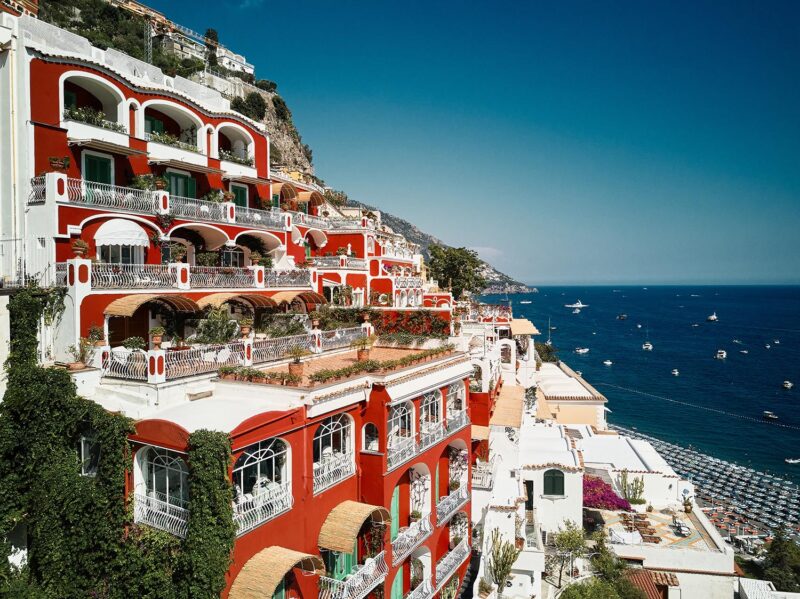
Family Affair
Le Sirenuse: Succession
The third generation of Sersales is bringing fresh ideas to the legendary Positano hotel.
“I remember coming to Le Sirenuse as a young boy when my uncle was running it, and I was in awe of this place,” owner Antonio Sersale recalls of Le Sirenuse. “The perfume of sea salt in the air. It was so wonderful, I still cherish it today.”
Those who travel to Le Sirenuse—the storied Positano hotel named after the Siren Isles, or what the Italians call Li Galli—are easily seduced by its red-and-white, vine-covered facade, curved wrought-iron balconies, bougainvillea, and an enticing bright-blue pool overlooking the sea.
Le Sirenuse has become the emblem of Positano, the beating heart of Italy’s western coast, with its gravity-defying stack of colorful cliffside villas, sparkling azure ocean, Byzantine churches, and sweet lemon-and-jasmine-scented air. The hotel—originally an 18th-century family house—was converted into a five-star hotel in 1951 and is currently run by Antonio and Carla Sersale, the second generation of owners.
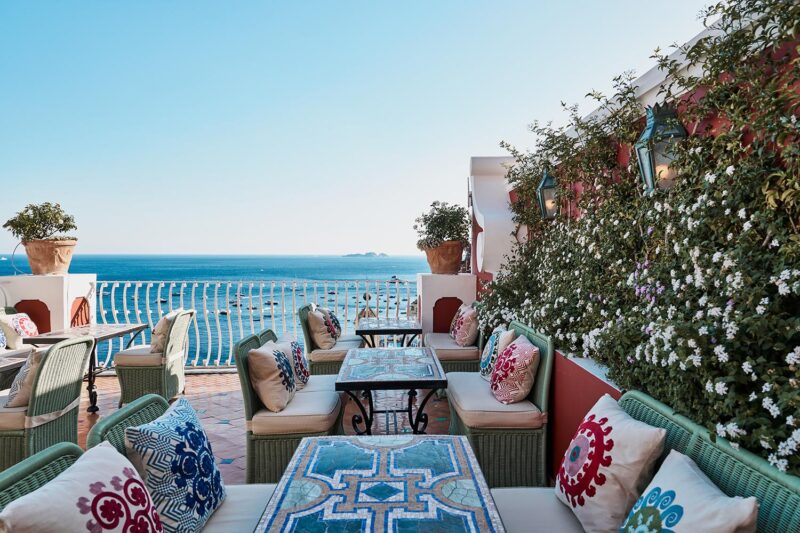
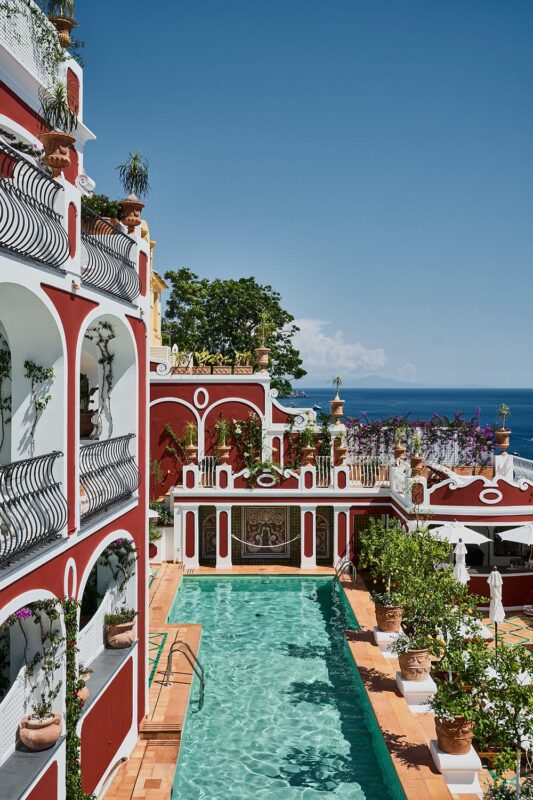
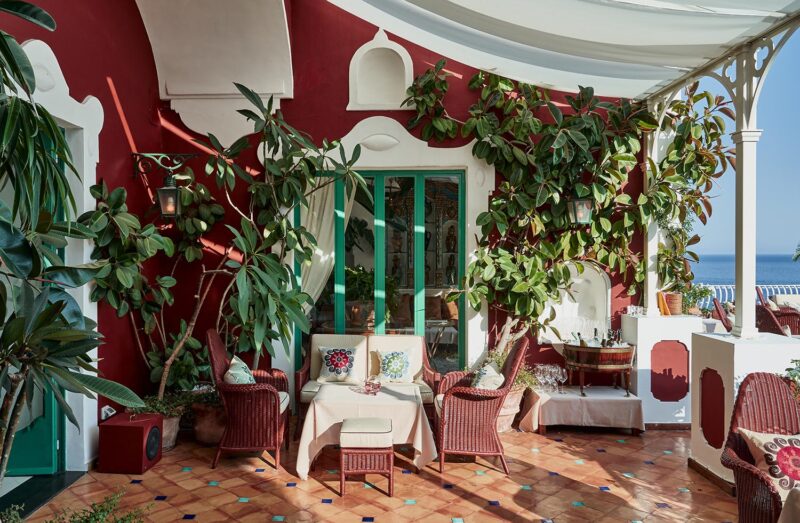
The story of Le Sirenuse starts with the Sersale family in the early 20th century, when siblings Anna, Aldo, Paolo, and Franco Sersale—scions of an old Neapolitan dynasty—would travel from their home in Naples, Italy to spend summers at their Positano estate. When Naples was bombed during World War II, the family permanently relocated to Positano. Even before they founded Le Sirenuse, the family welcomed guests—it was a place for British Allied soldiers to rest when in the area or for friends from around the world to enjoy Italy.
In the past 72 years, Le Sirenuse has been a Mecca for actors, socialites, dignitaries, academics, the fashion set, and many writers. Perhaps most notable was John Steinbeck, who famously wrote “Positano bites deep” in 1953. If the walls of Le Sirenuse could talk, they’d tell of raucous nights, languid sunny days, and pockets of such perfect beauty that, as Steinbeck put it, “your impulse is to conceal it.” Those who stayed in the home left as family—and this congenial atmosphere is what makes the hotel so famous.
On the outside, it might not look like much has changed. But subtle evolution is what keeps the hotel’s legacy going. “When I joined in 1992 [to help my father], I started working on this idea of quality of service, staff, and modernizing what was a very old-fashioned place run with a mom-and-pop hotel mentality,” Antonio says.
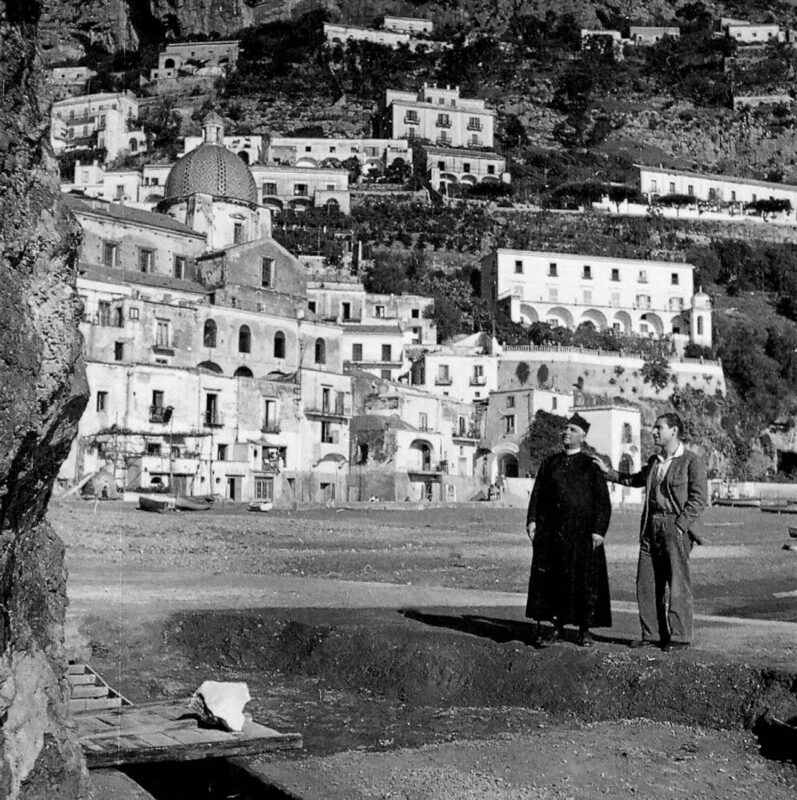
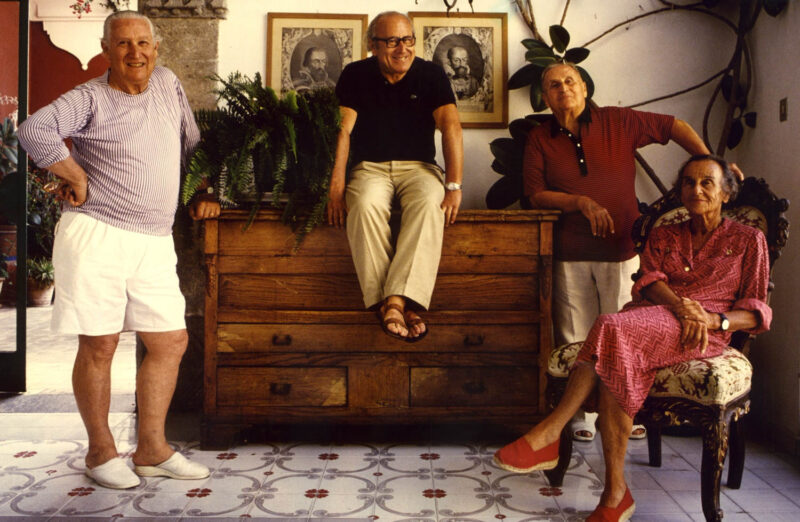
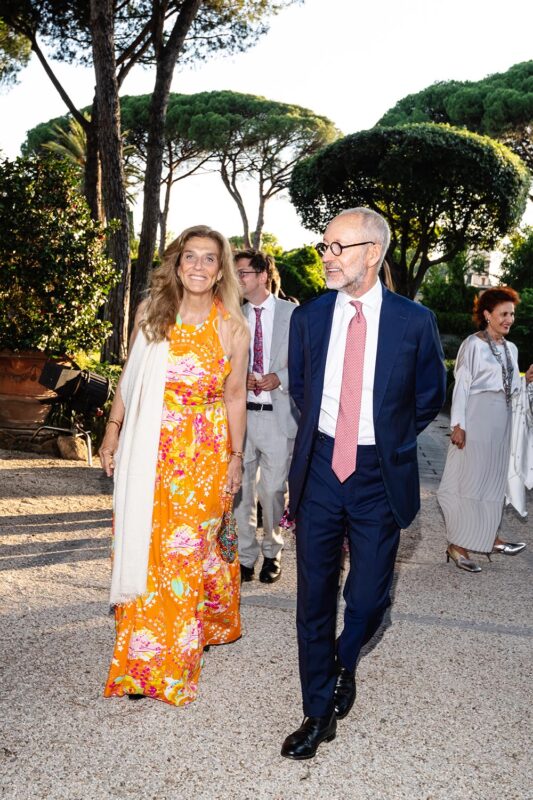
Family business and the succession that comes along with it often creates tension. He says this wasn’t the case with Le Sirenuse. Antonio didn’t immediately take over the hotel upon his arrival. After graduating from EHL Hospitality Business School in Switzerland and getting experience at hotels in the U.S. and Europe, he worked for five years under a manager that his late uncle—who was ill at the time—appointed. Once Antonio felt confident, he took over.
“The operation side was very much my focus,” he says. “Once my father [Franco] passed, I took over the decor, collaborating with contemporary artists, doing site-specific installations, and bringing a bit of the contemporary art world into the hotel.”
The 58-room hotel is brimming with Sersale antiques, textiles, and ceramics. These family heirlooms are juxtaposed with contemporary art installations: for instance, you can’t miss Martin Creed’s neon installation that reads “Don’t Worry” and hangs above the speakeasy-style bar of the same name.
Similar to how his father commissioned traditional artisans, Antonio and British curator Silka Rittson-Thomas established the platform Artists at Le Sirenuse to highlight contemporary talent: works from Beatrice Pediconi, Stanley Whitney, Alex Israel, Matt Connors, and Rita Ackermann, among others.
Antonio’s wife and co-owner, Carla, also founded resortwear label Emporio Sirenuse that embodies Positano’s la dolce vita and sells breezy embroidered linen dresses and ceramic tableware.
“The people I collaborate with express their character, friendliness, and sense of welcome, which is very much innate in the people of the Amalfi Coast,” says Antonio. “I really try to create an atmosphere which is congenial for them to be able to give the most and also create an intimacy. We are very fortunate in that we have numerous rooms which create intimate spaces where you can go sit down, maybe read a book, or just spend a bit of time thinking.”
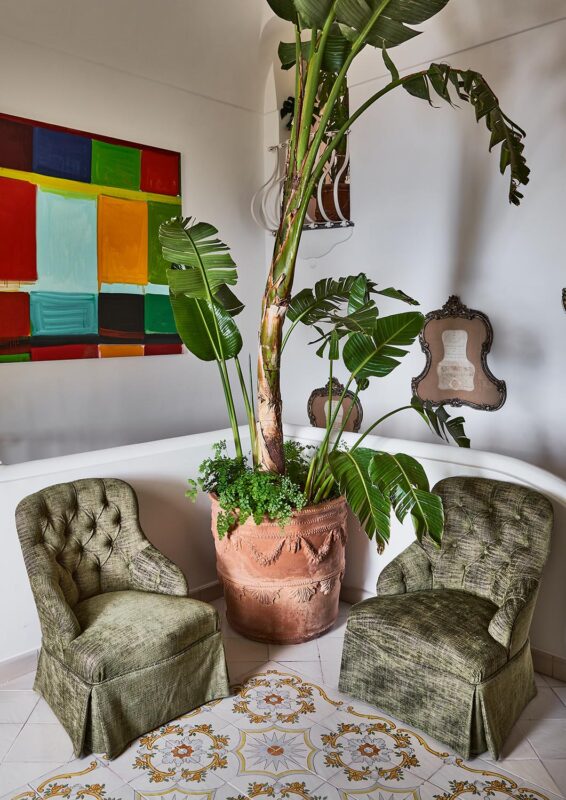
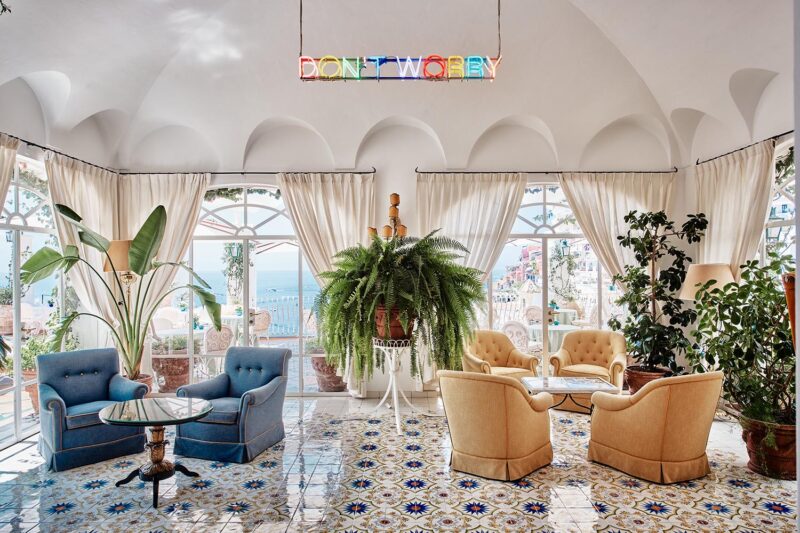
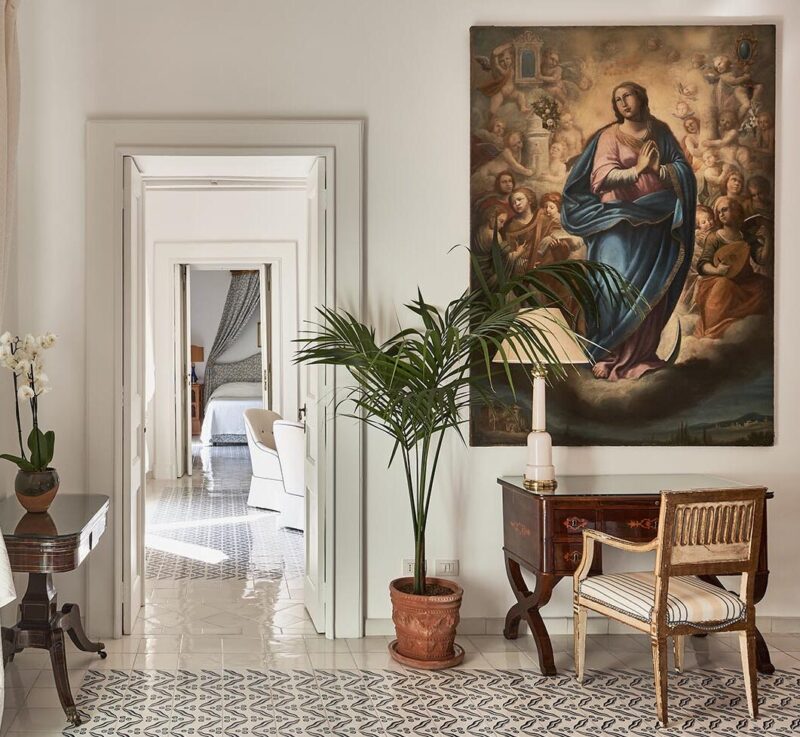
In what Antonio refers to as a “take two” and a continuation of the Sersale legacy, the couple’s sons—Aldo, 30, and Francesco, 29—are dipping their toes into the family business, making them the third generation to be involved.
The brothers had been forging their own paths in America and living in Miami when the pandemic struck. Temporarily unemployed, they decided to return to Italy. “The boys came back with great enthusiasm,” said Antonio. “We never called them back. It was their decision to come.”
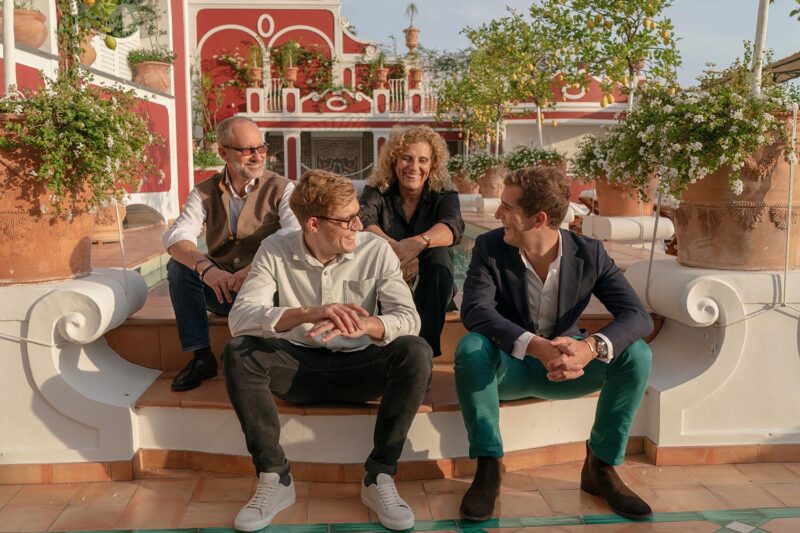
Le Sirenuse, like every business in the travel industry, was hit very hard by COVID. That year the hotel didn’t fully open until July (March is typical); the Sersales couldn’t hire staff, and they didn’t know if the hotel would survive.
The first COVID summer was “a disaster,” says Antonio. “The second was a little better but it’s taken us three summers to get everything back to normal.”
The return of their sons was an upside. Now, they are ushering in fresh ideas to cater to the next generation of travelers, just as Antonio did for his father in the early 1990s.
“One of my sons has a passion for bars and a passion for the kitchen, so he’s innovating our menus in both the restaurant and bar,” Antonio says. “My other son is involved with social media, sales, and marketing. They’re pushing boundaries beyond what I thought was possible. They want to push, innovate, and improve. It’s very exciting.”
The hotel has four dining concepts: Franco’s Bar, which opened in 2015; Aldo’s, an al fresco bar, grill, restaurant, and deli in one; La Sponda, the fine-dining restaurant; and Don’t Worry Bar. There are new and exciting announcements on the horizon, but in the meantime, his sons are encouraging robust mixology programs and helping to refine the menus and experience. In order for Antonio to bring in the next generation, he’s teaching his sons about what makes Le Sirenuse, Le Sirenuse.
“I try to be the referee,” he says. “I know what the DNA of the hotel is and what we can’t change. But there are other things I feel are open to change, and I try to be modern. It’s all about elegance with nonchalance. [The secret to a successful hotel is] love for your guests and passion for the industry. Your guests and collaborators are the strength of your brand, not the name.”
Hero image: Le Sirenuse hotel, Positano, Italy. Photo by Brechenmacher & Baumann



